How To Catch Black Drum (Plus Free PDF Catch Card)
- By: Joseph Simonds
- on
- Found In: Fishing Tips, Inshore Fishing
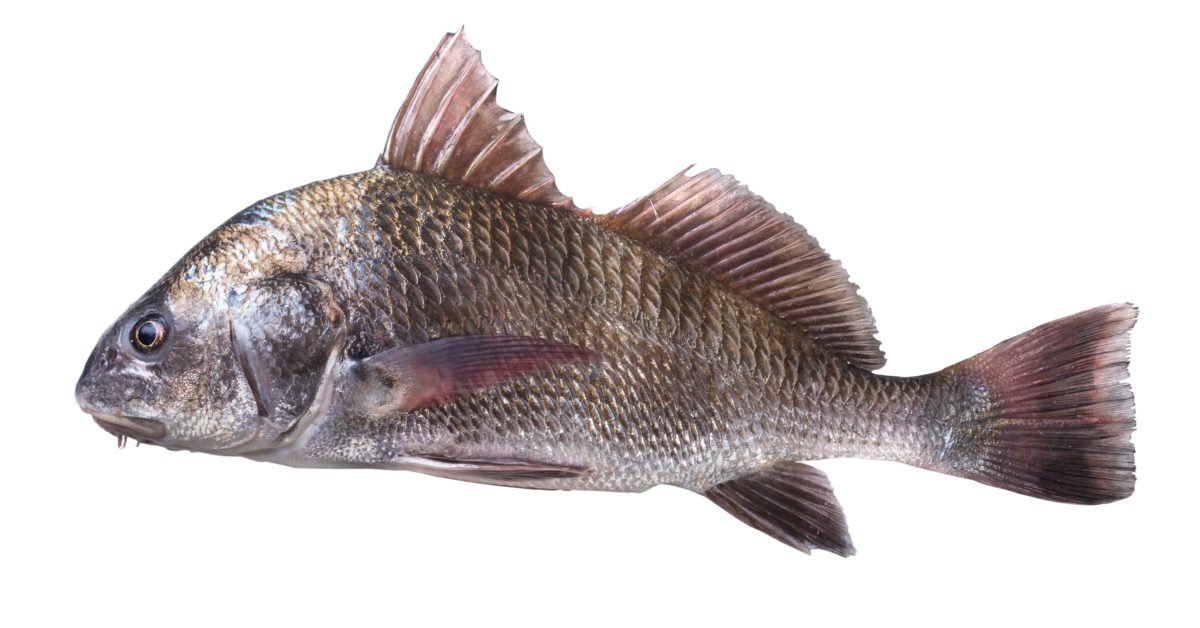
Black Drum
Pogonias Cromas
A few weeks ago one of our Insider members Daniel Flinn whipped up this amazing article on how to catch sheepshead for us.
Everybody loved it, so we figured we’d bring him back for a black drum version.
He covers where to find them, what bait and lures to use, the best time of year to catch them, and more!
Enjoy!
Note: don’t forget to download this free Black Drum Cheat sheet here.
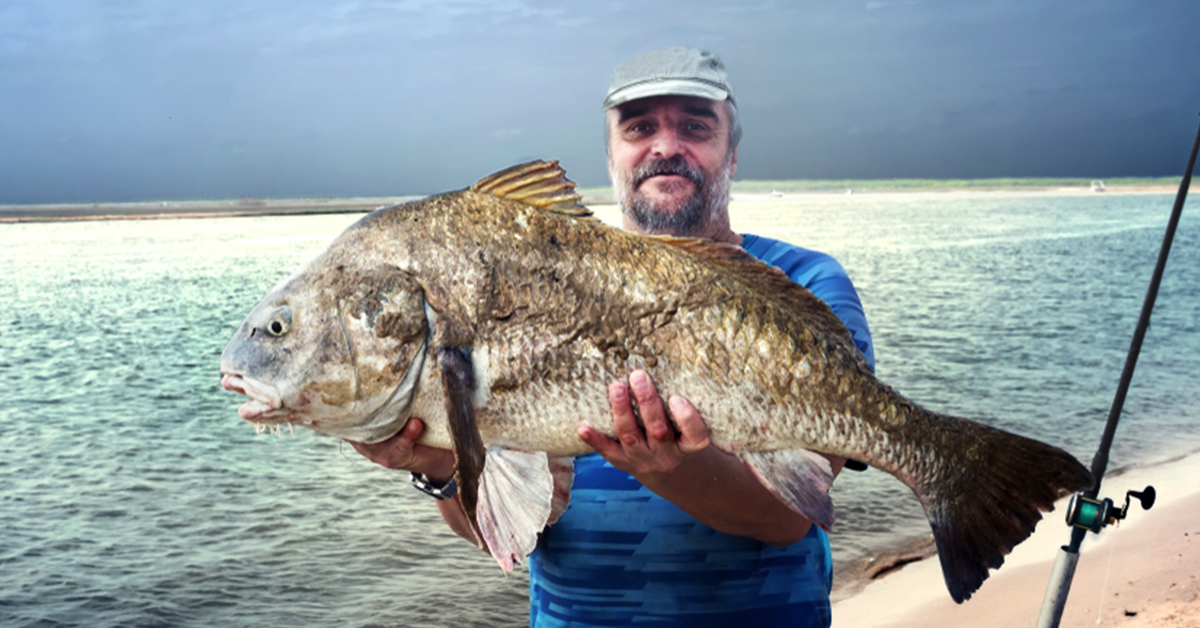
Where:
- Offshore near deep channels and around structure
- Nearshore around structure such as rocks, marker posts, debris and even on the flats
- Onshore around piers, docks, posts, other structure
When:
- All year round with influx February and March
- When the tide begins to move, they will feed
Gear:
- Light spinning or bait casting tackle preferred
- Medium to stout 6 to 7-foot rod
- 12-20 lb. braided line
- 15-20 lb. fluorocarbon leader
- 1/0-2/0 circle hook to match bait size
- Enough weight to keep the bait near the bottom
- Carolina rig with 6-8-inch leader
Bait:
- Fiddler or other small crabs
- Clams
- Live or dead shrimp threaded on hook
- Will sometimes take a slowly moving jig such as a bucktail
Tactics:
- Cast and wait. They travel in and around structure when tide is moving.
- Don’t jerk to set the hook. Simply begin reeling in quickly until fully hooked.
- Break off part of the shrimp to leave a scent trail.
- Try using slow moving jigs tipped with bait.
- Keep rod tip up and make sure drag is not too loose. They can wrap around structure very quickly.
- Let the tide take your bait toward the structure, not away from it.
- Trail these fish. They spook easily if they can see you.
Trends:
- Though black drum can be found year round, they come inshore in larger numbers
during February and March.
Community:
- Check with local marina personnel who can tell you where anglers are finding them.
- Anglers fishing near piers and docks might report sightings.
- Talk to other anglers at the launch and also at the piers. While they may not want to divulge secret spots for other species, they are not as stingy with black drum.
| Tactics | Trends | Tips |
| Structure: docks, piers, marker posts, rocks, artificial reefs | February and March are excellent for Florida | Carolina Rig with circle hook. Let the fish set the hook. Be careful not to let them wrap you up. |
| Bait: shrimp, crabs, bipeds. Break pieces off or crush crabs to provide scent trail. | 14-24 inches are best eating. Larger fish stay offshore or near deep channels. | “Set and forget” patience is usually required for black drum. They travel constantly through and around docks and piers. |
Drumming Up Some Tasty Table Fare
by Daniel Flinn
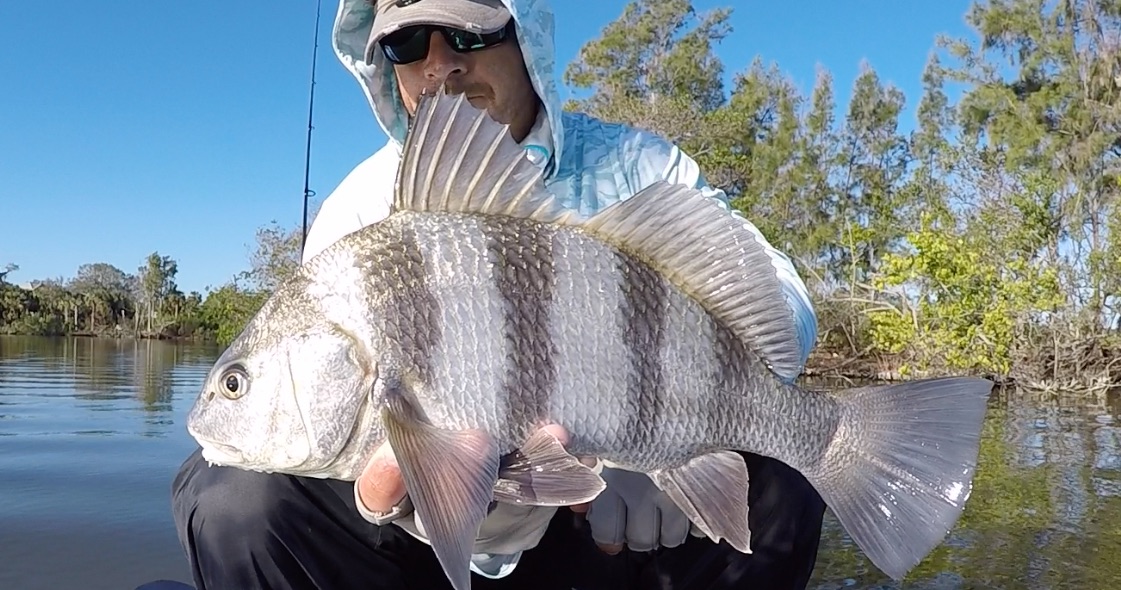
They’re not really black, and they don’t look like drums, so why are they called black drum?
If you are fortunate enough to catch one of these members of the “Croaker” family, as soon as you pull
this black and white striped fish out of the water, and you hear it “croaking,” you’ll understand why it’s
called a black drum.
You’ll also notice that it has distinctive whiskers that allow it to feel and “taste” its preferred food on the bottom.
While black drum can reach over 100 pounds, we’ll focus on the 14 to 24-inch size since these are the best fit for the table.
Large black drum (over 30 inches) lose taste and texture, and may also contain worms.
But be warned that targeting black drum is not as easy as it sounds.
There are plenty of other fish, such as snapper, trout, and ladyfish that hang out in the same locales and would be more than happy to have your bait.
Where to Find Black Drum
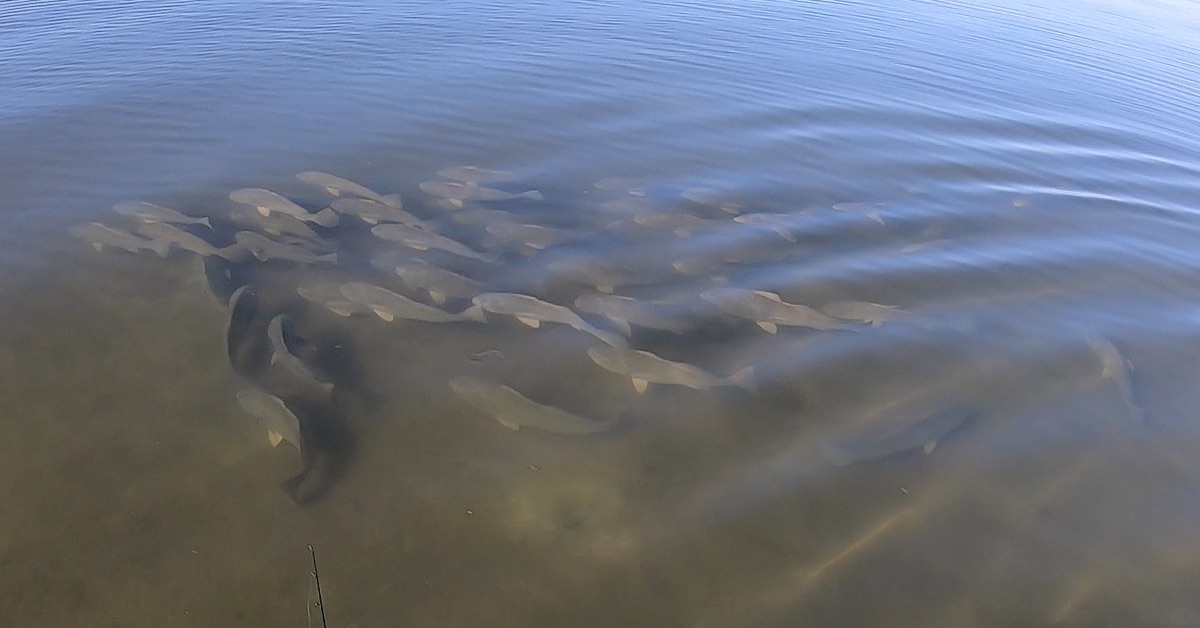
While they can be found in the inter-coastal and the Gulf all year long, they come toward shore in large numbers during February and March.
The larger drum can be found near deep channels where there is also some structure.
They also tend to congregate around dock pilings, bridges and at the edge of sandbars.
Seasoned anglers often spot them in the shallows traveling in both small and large groups.
Here’s the best setup for black drum:
- Medium action, 6 to 7-foot rod
- Spinning reel with 12 to 15 lb. braided line (mono is more easily cut off around structure)
- A Carolina rig with 8 to 12- inch fluorocarbon leader
- 1/0 or 2/0 circle hook to prevent gut hooking the fish.
Use just enough weight to keep the bait near the bottom where black drum typically look for their food.
Use a longer rod and a little more weight if you’re surf fishing.
Bait & Lures For Black Drum
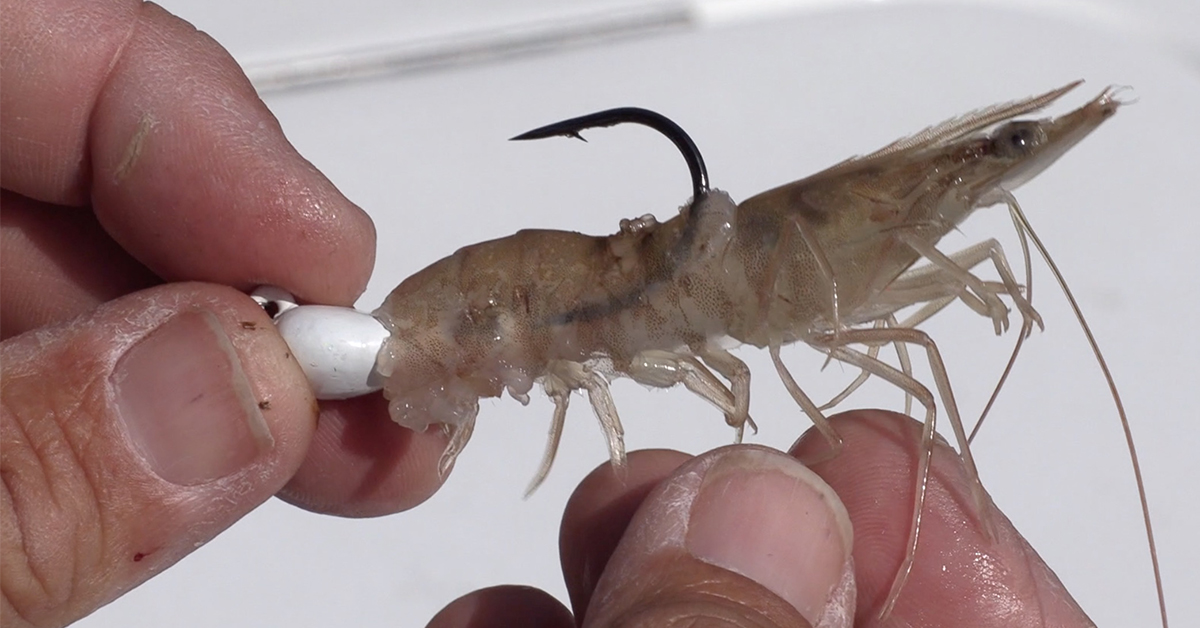
Much like we will follow the wafting fragrance of a newly cooked apple pie right to its source in the kitchen, black drum are known to follow scent trails in the water.
Shrimp and crabs are like dessert to these fish, and pinching off the shrimp’s head or cracking open the crab will help create the perfect scent trail to lure these tasty delicacies to your bait.
On occasion, they will take a slowly moving jig such as a bucktail, but you’ll have better odds with live bait.
Because these fish fit nicely into the “cast and wait” category, patience is required.
Consider a good book, great conversation or fine music to help while away the time waiting for that rod tip to bend.
Black drum will pretty much hook themselves.
Unlike some fish that suck in the bait and then swallow, black drum typically grab and go.
Rigging Blue Crabs For Black Drum [VIDEO]
Landing Black Drum
When that pole begins to bend, don’t jerk back on the rod to try to set the hook.
Begin reeling in quickly and the fish will usually be hooked in the corner of its mouth, making it very easy to unhook and throw back if it’s either too small (under 14 inches) or too large (usually over 24 inches).
Once the black drum is on, make sure to keep the rod tip up and the drag set so that it cannot wrap the line around structure as they tend so often to do.
This is why braided line is superior to mono as it cannot be cut quite as easily.
Of course, if you do get wrapped and then manage to get the line free, check the braided line for weaknesses where it may have scraped against anything sharp below.
These fish can put up a pretty good fight, so using a net to take them out of the water is a pretty good idea.
Conclusion
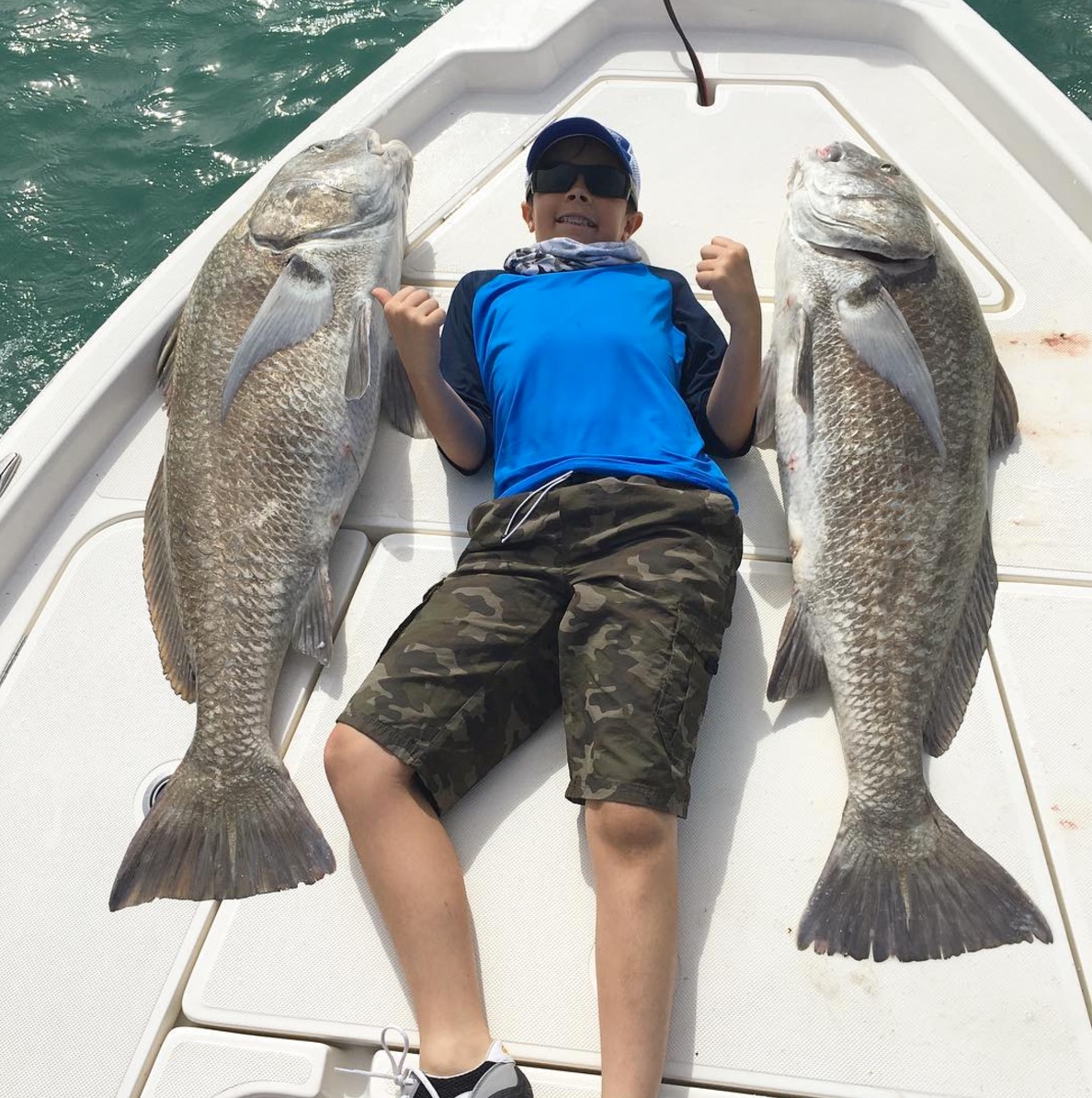
Black drum make excellent table fare and sport for children as well as adults, and are sure to add positive vibes to any angling adventure.
They’re easy to clean and their fillets (in the 14-24 inch range) are considered some of the best seafood around.
Remember this when you’re targeting black drum:
- They mostly feed on shrimp and crabs, so these make the best baits, although you can occasionally catch them on artificial lures such as a slow-moving bucktail.
- The best time to target them is in February and March when they come inshore in large numbers.
- They like current and structure
- Use circle hooks and don’t set the hook when a black drum bites. Just reel in and he will hook himself.
Note: don’t forget to download this free Black Drum Cheat sheet here.
Hope you enjoyed these black drum tips!
Let us know if you have any questions about catching black drum in the comments below.
Do You Want To Quickly Find New Fishing Spots In Your Area?
Then you’ve got to see this private fishing club!
Here’s what you’ll receive today:
- Weekly fishing reports and TRENDS revealing where the inshore fish are feeding all year long
- Weekly “spot dissection” videos that walk you through all the best spots in certain areas
- Exclusive fishing tips from the PROS you can’t find anywhere else
- Everything you need to start catching fish more consistently (regardless if you fish out of a boat, kayak, or land).
Click here to join today.
Related articles:
Related categories:
STOP WASTING TIME ON THE WATER!
Do what the “SMART ANGLERS” are doing and join the Insider Club.
Here’s what you’ll receive today when you join:
- Weekly fishing reports and TRENDS revealing exactly where you should fish every trip
- Weekly “spot dissection” videos that walk you through all the best spots in your area
- Exclusive fishing tips from the PROS you can’t find anywhere else
- Everything you need to start catching fish more consistently (regardless if you fish out of a boat, kayak, or land).




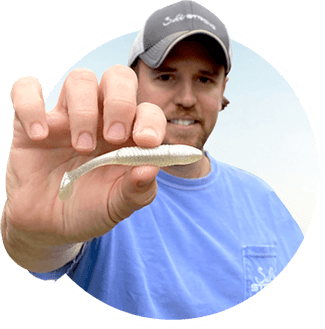
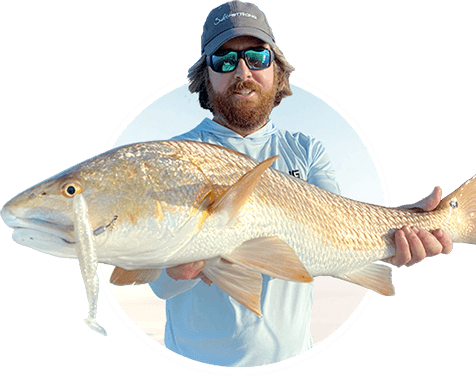
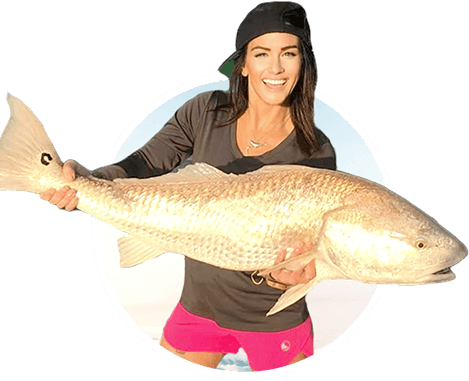
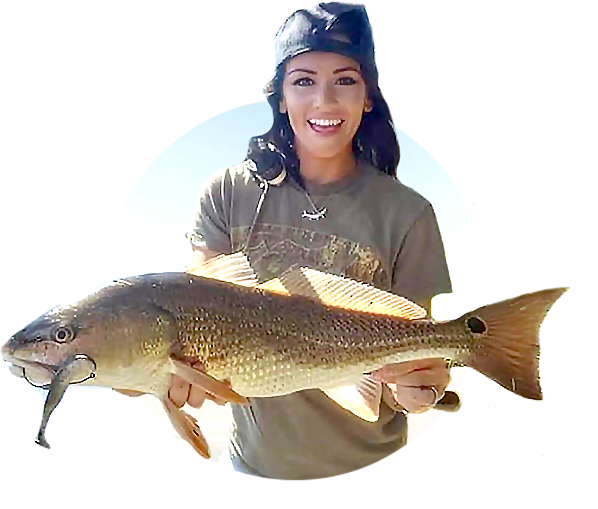
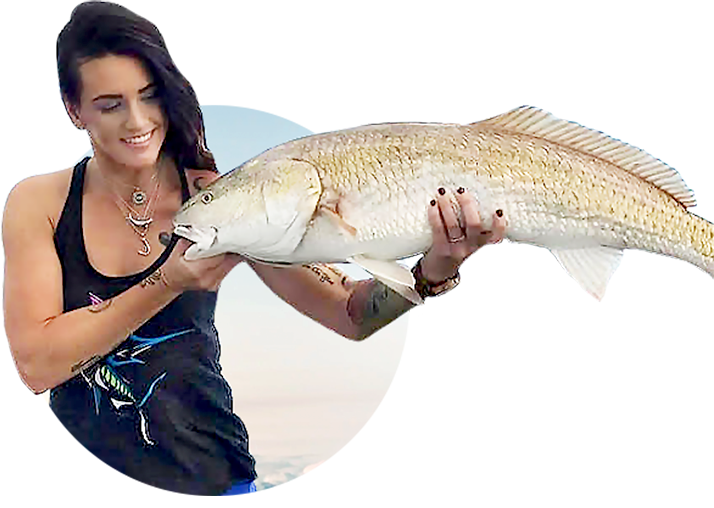

What is the best shrimp scent for spottails and trout.
braid is not more abrasion resistant than mono. It has many advantages but abrasion resistance is not one of them. It’s why we use leaders or top shots in many cases.
Good info….this works well!
I’ve caught a few in the 25-27″ / 10-12lb range on New Penny Gulp Shrimp, rigged on Trout Eyez jig-heads.
They are a great fight.
What time of day would be best to try and catch them around bridges?
Good question, Michael. Black drum are constantly on the move and will look for food when the tide is moving. Slack tide is probably not your best bet.
What time of the year does black drum school in shore for South Carolina?
I got hungry for crab watching all that crabmeat !
Joe, I have been fishing with crabs for years and years, in all the methods that you presented. But I especially liked your sissors technique, rather than me wacking them with a big knife and shattering that shell.
But I’ve got a tell you Joe, this video is the best, most succinct, most clearly presented, all encompassing video I have ever seen on using crab!
My hats off to you. Great job!
Joe: Good recommendations. I went out offshore for sheepshead 2 Sundays ago out of Cedar Key. Much to my surprise I caught 2 really nice Black Drums in the 7-10 pound range on live shrimp in about 35′ of water. We fished on a wreck/structure. My buddy caught another 2 more as we finally caught some sheepshead. I didn’t realize that they would be out there, but they were fun to catch.
Are black drum located all along the coast of Florida or are they more populated central, north, west, etc areas of Florida.
Ex. are they in the keys??????
Indeed, they are located all along Florida’s coastline, including the Keys where you’ll also find red drum.